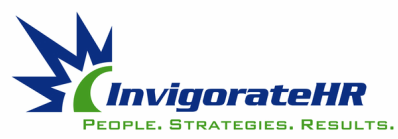 It seems everyone hates performance reviews. Managers probably hate them just as much as employees do. However, performance reviews have proven to yield strong results when done right, and many still believe that they are an integral part of optimizing the way you do business. Performance reviews can have positive effects on both the company and the staff. However, if done the wrong way, they can cause irreparable damage and wreck the organization’s culture. Poorly conducted performance reviews demotivate staff, instill fear and a sense of distrust in the workforce, and make managers’ jobs harder and more complicated in the end. While performance reviews are usually well-intentioned, they are often poorly-executed. How can you be certain that you’re doing it the right way? For starters, here are five things not to do when conducting performance evaluations. Don’t Make Them Annual Events. When you make it a once-a-year event, you are immediately adding stress to an already stressful situation. It becomes an event that both managers and employees dread. Keeping a laundry list of mistakes and shortcomings for each of your employees and then confronting them with these issues once a year is, in reality, as horrible an idea as it sounds on paper. Employees need and thrive on regular feedback and open conversations. As a manager, you need to design a simple and effective process for meeting with your employees on a more regular basis and speaking openly about things they can do to improve the way they work. That’s the best route to take if you want to see real, palpable and positive results from the review process. Don’t Make It About Personality. It’s impossible to give a fair assessment of an employee if you are focusing on their personality traits, simply because it’s a completely subjective criterion. If you believe that a person is demonstrating a negative attitude or displaying a personality type that doesn’t work well within your company, there is a more productive way to approach them about it than commenting directly on their behavior. Focus on the outcome of their behavior and personality. How are these personality traits objectively manifesting themselves? What are the concrete results of these behaviors? Be specific and give real examples. Commenting on their personality traits directly will come off as a personal attack, which is the last thing you want. Use the hard facts and results to demonstrate what they are doing wrong and how it’s negatively affecting their performance.
Don’t Mix Development and Compensation Reviews. Never schedule one performance review for an employee that is going to act both as a developmental meeting and a talk about salary. They should never be combined. If you need to do both for one employee, make sure to separate them. When you are combining the two processes, you are going to be diminishing the effects of the developmental part of the process drastically. If your main concern is developmental, then leave the talks of compensation out completely. If you want to talk about salary, make sure that your employee knows that this is what the review is going to be about. Don’t Compare Employees to One Another. This rule is very similar to the one about involving personality traits in performance reviews. It’s something you simply should not do under any circumstances. Use real goals and targets to make your comparisons. Show your employees the goals that you have set for them to reach and then grade their performance on how close or far they are from reaching these goals. Always draw comparisons to business data and concrete goals, never make it about competition between employees. Don’t Forget to Offer Solutions. One of the biggest mistakes managers make is that they fail to follow up with concrete plans and actions after the fact. Your employee evaluation isn’t complete until you’ve talked about what it is that both you and the employee can do to make improvements. Let them know what steps they need to take to improve and ask them what help they will need from you or the rest of the team to make those improvements. Look at it as a cycle. One performance review has ended and now it’s time to move on to the next phase in your employee’s professional development. Remember, the employee should not feel as if he or she is on trial. It should feel like a conversation. Set aside some time at the end of each evaluation for them to speak their minds. Adapted from SHRM. Comments are closed.
|
Archives
December 2024
|

 RSS Feed
RSS Feed